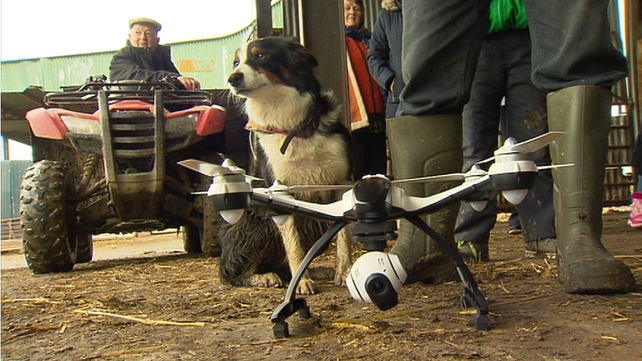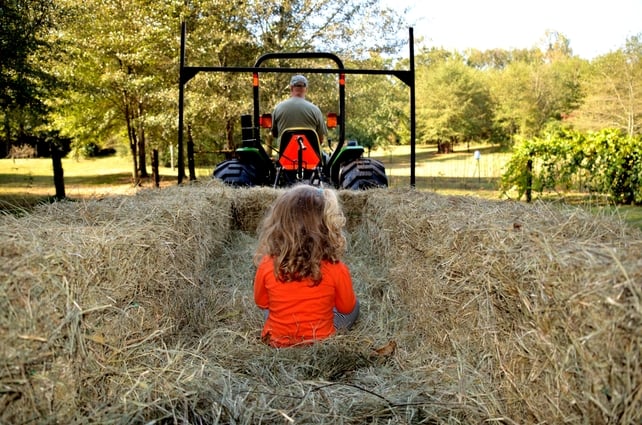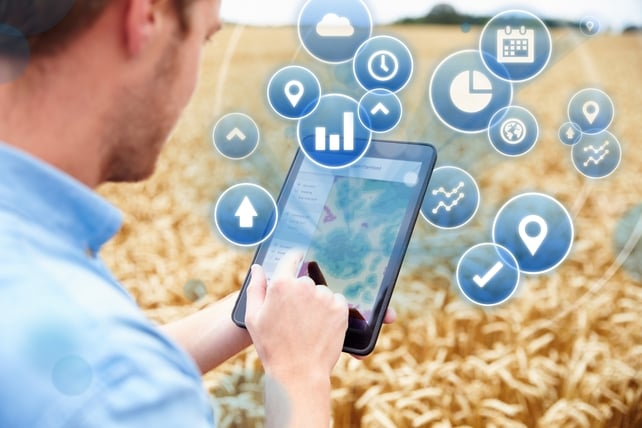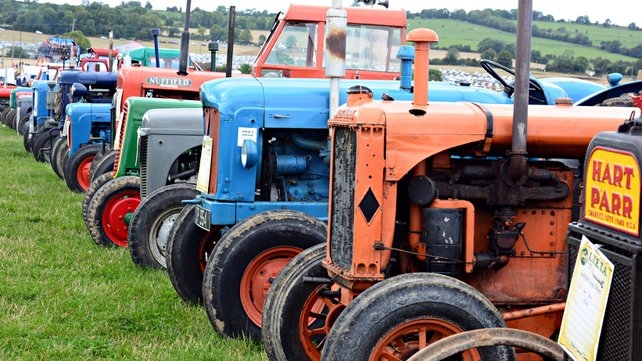Trends: What's New in Farming?
As technology in farming is moving at an unprecedented rate, who knows what direction the next trend will be. With a variety of developments already in motion, one thing Science and Technology correspondent Will Goodbody is sure is, drones will play a part in it all.
"Clearly one of the most promising developments when it comes to technology on the farm in the coming years will be the use of unmanned aerial vehicles" Goodbody said. "Drones are already being used for crop analysis and surveying, rounding up animals, crop spraying and more.

"And as the drones become more high tech," Goodbody explained, "that list of potential uses is only going to expand."
"There are also many other exciting innovations in development, from robotic autonomous machinery to smart monitoring devices for livestock or crops, which will continue to revolutionise farming here in Ireland and around the world."
Farm Safety: Is Technology Dangerous?
With heavy, powerful machine and animals, farms have always been seen as somewhat unsafe places. Particularly with children where farms can be places of excitement and adventure. With talk of unmanned machinery and vehicles, surely there are added dangers to farms for workers, families and farmers themselves?

Goodbody agrees that safety is an issue that must be developed in line with technology. "According to the Health and Safety Authority the fatality rate in agriculture is far higher than in any other sector of the economy" he explained. "And it is true to say that, although it might hold great potential, technology that is in its infancy or in development can often be dangerous."
"But technology can also help reduce risks too. Anything that eases the workload on farmers or saves them from having to venture out in the dark or challenging conditions to monitor livestock or crops, for example, is likely to reduce accidents. There are also many ongoing advances in sensor technology, which will make machinery safer too."
Barriers: What Needs To Be Addressed?
From personal experience living in the countryside, broadband, signal and accessibility are all barriers to technology. Couple this with acres and acres of farmland, uneven and sparse terrain, and one must consider how technology can become universal on farms in Ireland.

For Goodbody the main issue is in fact the roll-out of adequate broadband to meet the needs of progressive farmers. He said that "without doubt the biggest challenge they face in using it is the poor broadband service that blights many rural areas of the country."
That situation is slowly being addressed through the government's National Broadband Plan, the roll out of fibre networks by private operators and the upgrading of mobile networks in rural areas. But the improvements aren't happening fast enough to enable farmers to keep pace with the technological developments in their industry.
"For a farmer, there is little point in exploring the benefits that the "internet of things" (the connection of all sorts of devices together over the internet) can bring" Goodbody said, "if they can't even get a consistent download or upload speed of more than 1 Mbps."
Tradition vs. Technology
While at the Ploughing Championship, to see such a mix of traditional and innovative meeting was quite the experience. It does beg the question how events such as the Ploughing, which is based largely on celebrating tradition, can fair when techniques in farming are changing at a rapid pace.
"Clearly we can't stand still when it comes to technology" Goodbody warned. "History is littered with examples of companies, organisations and indeed farms that failed because they didn't move with the times. But at the same time, we can't forget where, who and what we have come from."

"That's why it is so nice to see brand new high tech machinery alongside vintage tractors and machinery at the National Ploughing Championships" he added.
"And no matter what new gizmos emerge in the meantime, there is no doubt that simple things like bailing twine and wellies will still be as useful in fifty years time as they are today and have been for generations!"


